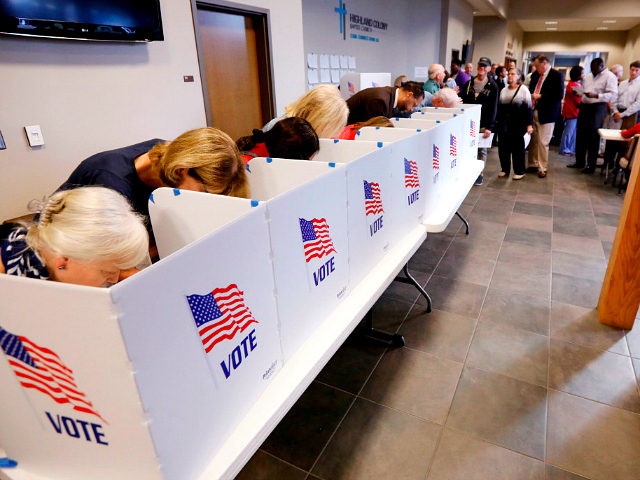North Carolina Republican lawmakers said Friday they would challenge Democrat Gov. Roy Cooper’s veto of a bill requiring voters to show photo identification at the polls.
Cooper vetoed the legislation on Friday, even though more than 55 percent of the state electorate approved of the measure in a referendum, the News & Observer reported.
The legislation requires voters to show any of a range of accepted photo IDs— including driver’s licenses, student IDs from higher education institutions, state and local government ID cards, and military ID cards. The bill also allows county election boards to provide free photo identification cards to eligible voters who fill out forms at polling places.
“Requiring photo IDs for in-person voting is a solution in search of a problem,” Cooper said in a statement.
But state Republican lawmakers called Cooper’s veto—which came after pressure from a handful of left-wing groups such as Equality NC and the American Civil Liberties Union—a move that went against the wishes of residents in the state.
“We are disappointed that Gov. Cooper chose to ignore the will of the people and reject a commonsense election integrity measure that is common in most states, but the North Carolina House will override his veto as soon as possible,” state House Speaker Tim Moore said in a statement.
We are disappointed that Gov. Cooper chose to ignore the will of the people and reject a commonsense election integrity measure that is common in most states, but the North Carolina House will override his veto as soon as possible. https://t.co/r4wbeAwP0i #ncpol #ncga
— Speaker Tim Moore (@NCHouseSpeaker) December 14, 2018
Republican Senate leader Phil Berger agreed, releasing a statement Friday stating that lawmakers would “override” the governor’s veto on behalf of the state’s voters:
The voters made their preference clear on Election Day that they want voter ID in their constitution and we plan to override Governor Cooper's veto #ncga #ncpol pic.twitter.com/wSr5gbrLGG
— Senator Phil Berger (@SenatorBerger) December 15, 2018
Republicans hold a veto-proof majority in North Carolina’s House and Senate, meaning state lawmakers could successfully override Cooper’s veto if GOP lawmakers agree
A vote on the matter could occur as soon as next week.
State Republican lawmakers are voting on the issue now because they will not have a veto-proof majority after January when Democrat legislators who won seats on Election Day take office and narrow the Republican majority in the legislature.
Federal judges ruled against a 2013 state law requiring photo IDs at the polls, saying the law discriminated against people by race. Republican lawmakers circumvented the ruling by allowing voters to decide on a constitutional amendment requiring voter ID.

COMMENTS
Please let us know if you're having issues with commenting.